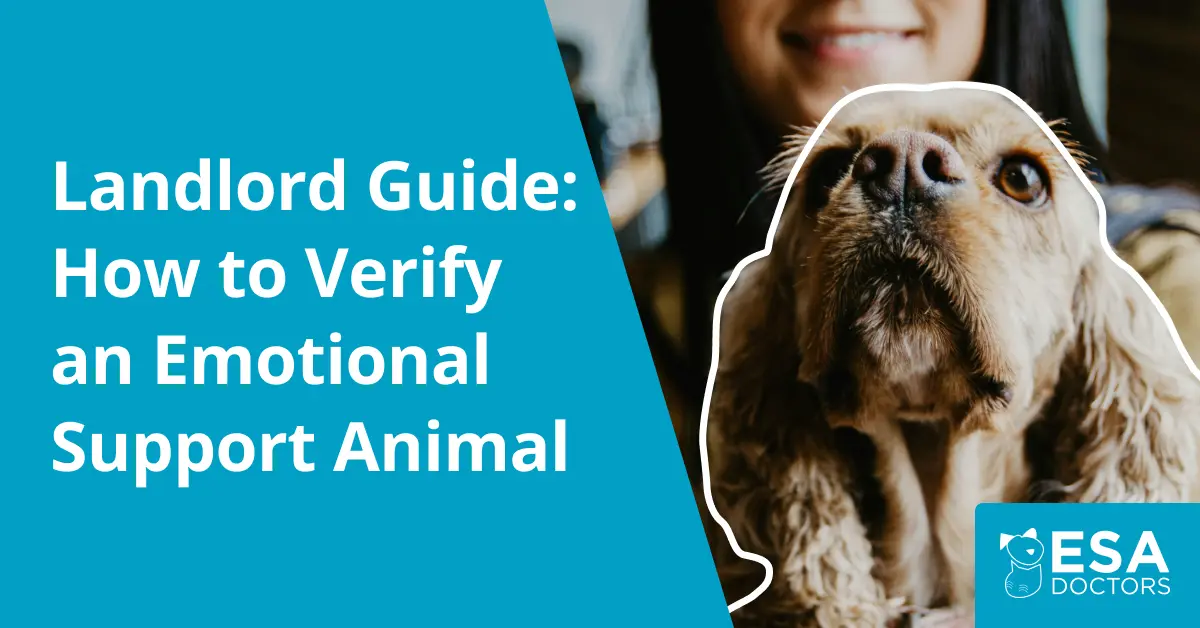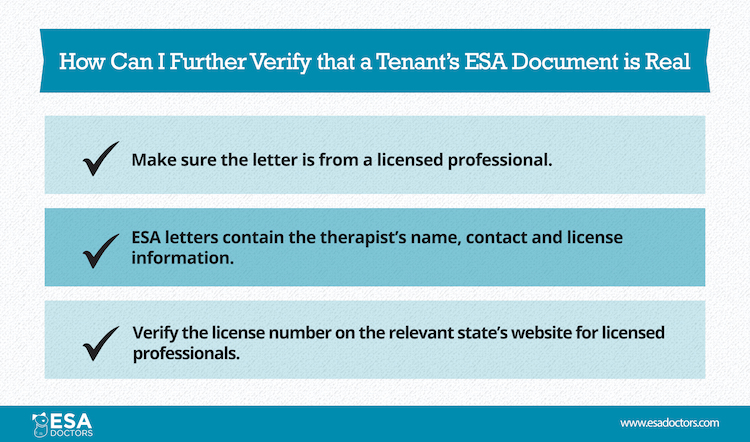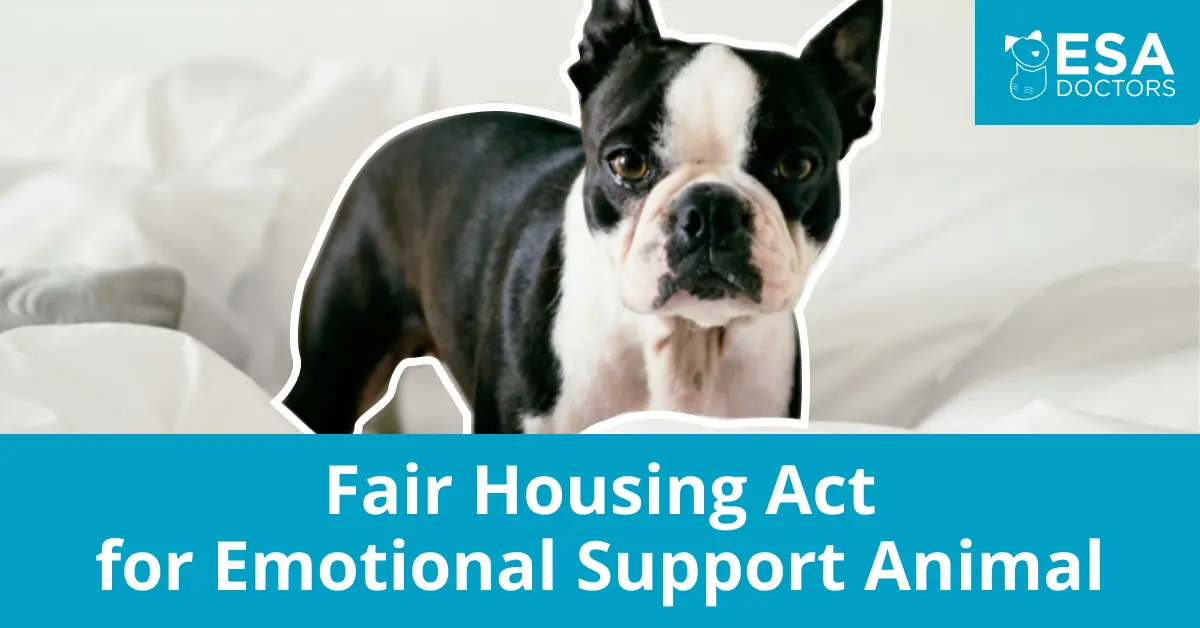As a landlord, homeowner association (HOA), co-op, or other housing provider, you may have received a request from a tenant who wants to live with an emotional support animal (ESA). You, of course, want to comply with HUD’s housing rules but also make sure the request is genuine.
As a landlord, you can verify a tenant’s emotional support animal request by doing the following:
- Making sure the tenant has an ESA letter
- Reading the ESA letter to make sure it says the tenant has a health condition that requires an ESA
- Making sure the letter was written by a licensed healthcare professional
- Making sure their license is active for your state
The verification process for ESAs does not include:
- Checking a database
- Requesting medical records of examinations
In this article, we’ll further explain how you can verify a tenant’s ESA request while complying with Fair Housing rules.
What can I ask a tenant to prove they really need an emotional support animal?
The only thing you can ask a tenant for to prove they have an emotional support animal is an ESA letter signed by a licensed healthcare professional. You can’t ask the tenant specific questions about their disability or medical history.
You can, however, get reasonable assurances that the tenant’s emotional support animal won’t create safety issues for other tenants. You can ask, for example, if the tenant’s dog has been vaccinated and whether there are any behavioral issues to be aware of.
You’re allowed to have constructive conversations about how to accommodate a tenant’s ESAs as long as you don’t violate the tenant’s right to privacy regarding their health.
If the tenant requests accommodation with an emotional support animal, the housing provider is entitled to request supporting documentation in the form of an ESA letter.
ESA Doctors, est. 2015
What type of documentation is valid for an emotional support animal?
The only document valid for an ESA request is an ESA letter from a licensed professional, like one of the following:
- psychiatrists
- psychologists
- social workers
- physician’s assistants
- nurse practitioners
- nurses
- licensed counselors and therapists
Keep in mind that an ESA letter does not have to come from a doctor, and most ESA letters are actually not from physicians.
Housing providers are sometimes presented with things like ESA registrations and certificates, identification cards, tags, and other accessories. Be aware that these items are not sufficient to prove that a tenant’s pet is an ESA, and you have the right to ask for an ESA letter instead.
How can I further verify that a tenant’s ESA letter is real?
After being given an ESA letter, you might wonder how you can verify that the letter is authentic. The ESA letter should contain the therapist’s name, contact information, and license information.
You can verify the provider’s license number on your state’s website for licensed professionals. The website should tell you whether or not the therapist is actively licensed.
If, for some reason, you still have doubts, you can try contacting the provider to verify that they wrote the letter. Be mindful, however, that you shouldn’t inquire about the tenant’s mental health history. The provider may also refuse to disclose information due to client confidentiality, in which case you’ll need the tenant’s permission to speak to them.
What can’t I ask regarding a tenant’s emotional support animal?
HUD guidance states that landlords can’t require the disclosure of details regarding the tenant’s diagnosis or the severity of their disability.
The landlord is also prohibited from requesting medical records.
ESA Doctors, est. 2015
Some landlords make the mistake of denying an ESA letter because they feel it did not sufficiently describe the tenant’s reasons for needing their emotional support animal. That may be a deliberate omission by the therapist since both professional obligations of confidentiality and Fair Housing rules prevent the provider from disclosing too much information about the tenant’s condition.
Asking the tenant what the ESA has been trained to do is also not allowed. That’s because, unlike service dogs, emotional support animals don’t need any specialized training to support their owners.
Can I ask the tenant to fill out my own form?
If a tenant has provided a valid ESA letter, you can’t request additional forms, certificates, registrations, or ID cards.
In the past, many landlords tried to have tenants and their healthcare providers fill out additional forms to verify an ESA request. In an effort to stop this, recent HUD guidelines state that housing providers can’t require a healthcare professional to use a specific form, provide notarized statements, make statements under penalty of perjury, or provide an individual’s diagnosis or other detailed information about a person’s physical or mental impairments.






Great info for essential pet owners.
Thanks for the compliment!